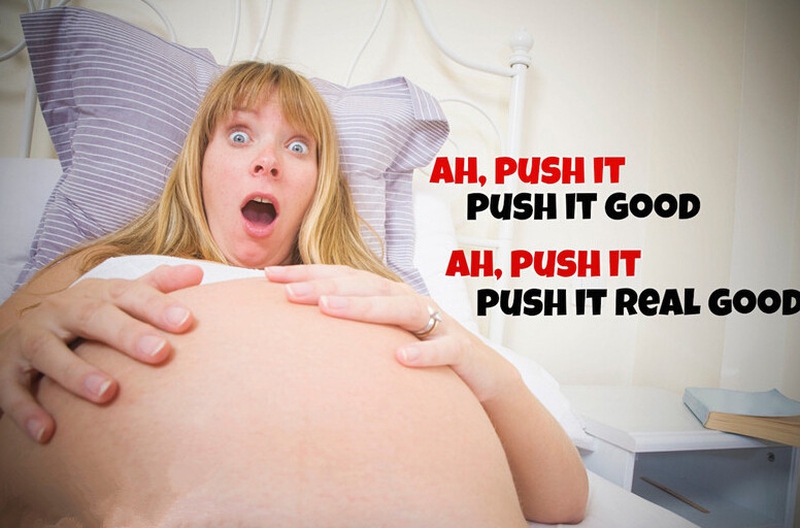Pregnancy is one of the toughest periods in a woman’s life. Contraction may contribute to the tough of it. It becomes common in the latter stages as your body starts to push down the baby through the birth canal. While contractions a day or two before your delivery date would most probably mean that your body is ready to go into labor, what do contractions that start during the second and third trimester mean?

Various Contractions During Pregnancy
Braxton Hicks Contractions
When it happens: These contractions begin in the third trimester of pregnancy (28th to 30th week) mostly though they might begin as early as the second trimester (20th week) in some pregnancies. And in the 9th month, it will become more frequent, like every 10-20 minutes.
Braxton Hicks contraction is the name given to the contractions in which the belly becomes firm when you touch it before relaxing again. Braxton Hicks contractions are mild in nature usually.
Preterm Labor
When it happens: Preterm labor often starts just a day or two before the 37th pregnancy week. If these sorts of contractions start earlier than the 20th week, then they often lead to a miscarriage.
How often it happens: In preterm labor, the frequency of contractions is around 8 times or more within an hour or around 4 times or more during a twenty-minute period.
Preterm labor or premature labor indicates that your body is prematurely getting in condition to give birth. However, the good thing about it is that as long you tell your doctor that your contractions have become too frequent a week or two earlier than your due date, the doctor can take steps to delay the delivery as much as possible.
Early Labor
When it happens: It happens at the start of the final week of your pregnancy. Early labor actually lasts around a day in most cases though it can go on for around 48 to 72 hours in some cases too.
How often it happens: The contractions become very frequent during early labor with one following another after around every five minutes. The contractions are a bit irregular though and might stop every once in a while too. Each contraction during early labor would lasts for around 35 to 40 seconds.
Early labor is the period when your cervix will start dilating and it is during this period that you might see a slightly brownish vaginal discharge. This actually is the removal of the mucus plug that keeps the cervical opening closed.
Active Labor
When it happens: Active labor is the final labor stage and starts after early labor. Active labor usually lasts for around 3 to 4 and a half hours at max.
How often it happens: The intensity of these contractions during pregnancy becomes high and they start to occur after every couple of minutes. They also last longer with each contraction lasting for over 50 seconds.
Active labor itself can be divided into two stages i.e. active labor and transitional labor. During active labor, the cervix dilates completely and there is enough of an opening for the baby to be pushed out. During transitional labor, the baby is actually pushed out. The contractions are very intense during this entire period.
Early Contractions in the First Trimester
Pregnancy contractions are not just limited to the final week of pregnancy. Contractions might start occurring as early as the first trimester though this is usually just the sign of your body adjusting to the rigors of pregnancy. However, it is usually not that common. Constipation, gas, dehydration and stretching of uterus ligaments can all cause early contractions during pregnancy. You should consult your caregiver if you feel pain in your abdomen or spot blood along with the contractions.
Sex Contractions
Orgasms can also give a feeling of contractions whether they are triggered by intercourse or not. These contractions neither increase the chances of preterm labor nor trigger active labor.
What You Can Do About Contractions
You should care about the contractions before the due date. Your doctor or caregiver needs to know every time you feel that you are going into labor. The most apparent sign of active labor are contractions that occur every five minutes. There is no need to feel guilty about calling at odd hours. Your consultant would ask you a couple of questions to not only assess your physical condition but also to understand your feelings through your vocal tone. Just be truthful about whatever you are feeling.
It’s best to actually call your consultant in each of these cases. In case the consultant cannot be reached, you should go directly to the hospital if:
Strong contractions during pregnancy even with the due date being a number of days away
No frequent contractions while the water has broken
A greenish tinge of your water
A feeling of the umbilical cord slipping into the vaginal canal

View All Comments /Add Comment